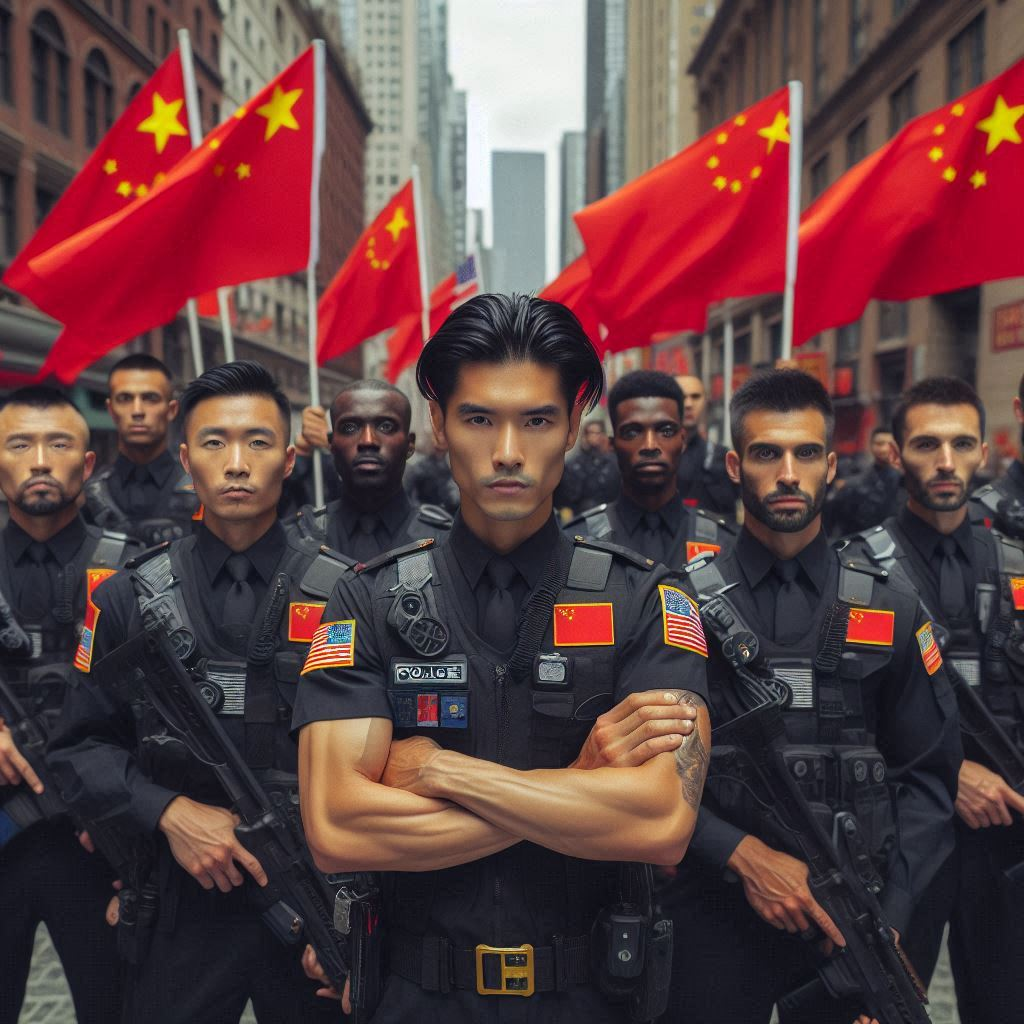In a strategic move that raises questions about its global ambitions, China has announced plans to train 3,000 foreign law enforcement officers over the next year. The program, part of the Global Security Initiative (GSI) launched by President Xi Jinping in 2022, is intended to enhance China’s role as a global security leader. However, behind the official narrative lies a deeper motive to assert control over international policing standards, particularly in regions tied to its Belt and Road Initiative (BRI).
A Global Security Strategy with Regional Focus
At the heart of this new initiative, announced by Public Security Minister Wang Xiaohong during the 2024 Global Public Security Cooperation Forum, is China’s effort to extend its influence to law enforcement agencies across 122 countries. This follows the training of 2,700 officers last year, with participants from countries like Malaysia, Pakistan, Myanmar, and even Interpol. However, questions have emerged over whether China is genuinely concerned with enhancing global security or if the initiative serves a more self-serving purpose: to secure its growing economic interests in developing countries.
China’s Belt and Road Initiative has seen billions of dollars poured into infrastructure projects across Africa, Asia, and the Indo-Pacific region, raising concerns about how Beijing safeguards its investments. Training foreign police officers could be China’s way of ensuring that local forces prioritize the protection of Chinese enterprises, rather than addressing broader local security concerns.
Cross-Border Crime or Expanding Power?
As part of the initiative, China will also deploy police consultants and working units to foreign countries to help improve local law enforcement and conduct joint patrols. While framed as a means to combat cross-border crime, these actions could allow China to tighten its grip on foreign policing institutions, offering a security framework that mirrors its own authoritarian model.

According to experts like Benjamin Ho, assistant professor at Singapore’s S. Rajaratnam School of International Studies, China’s actions present an alternative to the US-dominated global order. “It’s almost like saying, ‘If you don’t like the Western way of doing things, here’s the Chinese alternative,'” Ho noted, indicating Beijing’s intent to use this initiative to shift influence away from Western powers.
Human Rights Concerns and Criticism
The international community, particularly human rights organizations, has raised alarms over China’s increasing role in shaping foreign law enforcement practices. Some reports suggest that the tactics being taught to foreign officers include surveillance and crowd-control methods often criticized for suppressing dissent domestically. In Africa, where Chinese investment through the BRI is especially concentrated, local police forces are reportedly being trained to prioritize the security of Chinese businesses over the safety of local citizens.
Despite these concerns, China has pledged to train 1,000 African officers, with plans to extend such efforts globally, suggesting that these foreign officers may play a critical role in securing Chinese interests abroad. Additionally, the exact nature of the training remains opaque, leading to concerns about the long-term implications for governance and human rights in these regions.
Cutting-Edge Technology or Surveillance Tools?
At the Lianyungang forum, China showcased a range of cutting-edge policing technologies, including facial recognition software, surveillance tools, and high-tech equipment like bulletproof vests and batons. The display was aimed at impressing foreign law enforcement officials and potential buyers, signaling Beijing’s intent to export not only its policing methods but also its security apparatus.
Critics, however, argue that these technologies could be used to stifle opposition and bolster authoritarian regimes that are friendly to China’s interests. This has raised further concerns that China’s Global Security Initiative could be a vehicle for exporting its controversial domestic security practices under the guise of international cooperation.
Shifting Global Security Dynamics
China’s strategy appears to be part of a larger push to reshape global security governance in its favor. From mediating peace talks between Iran and Saudi Arabia to presenting a peace proposal for the Ukraine war, Beijing has increasingly positioned itself as an alternative leader in global diplomacy and security. The training of foreign police officers, therefore, could be seen as part of China’s broader ambition to challenge the Western-led world order.
However, the consequences of this initiative are far-reaching. By embedding its law enforcement strategies in countries across the globe, China could gain unprecedented influence over how these nations handle security, potentially tilting the balance of power in its favor. Critics argue that this move could exacerbate authoritarianism, particularly in developing countries where governance is already fragile.
What Lies Ahead?
As China continues to expand its security footprint, the world is left to question the true motive behind its foreign police training programs. While Beijing frames it as a way to foster international cooperation and enhance global security, many worry that it’s an attempt to export authoritarianism and protect its overseas interests under the guise of diplomacy.
With plans to provide 5,000 additional training opportunities for law enforcement officers over the next five years, the impact of China’s Global Security Initiative could be profound. How this will alter the global security landscape remains to be seen, but one thing is clear: China’s ambition to reshape the international order is only just beginning.
This report was produced by Investigative Journalism Reportika.




